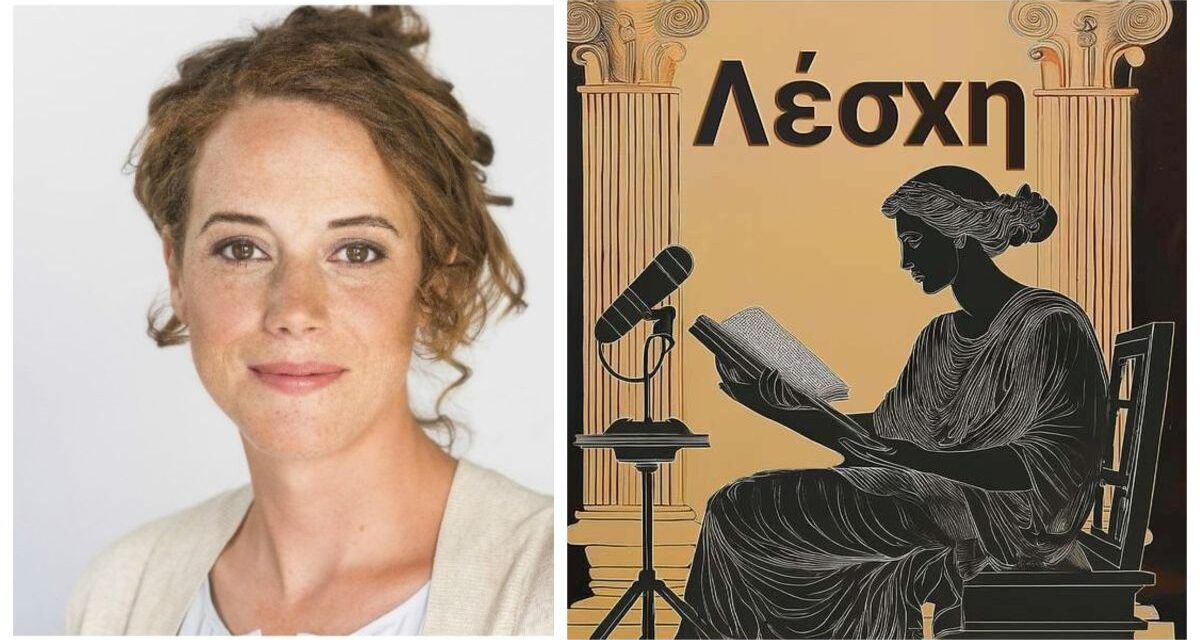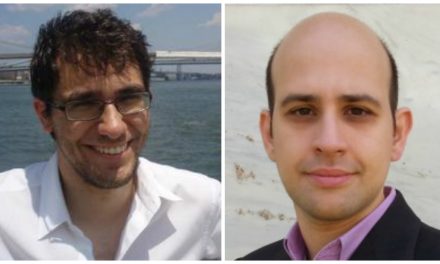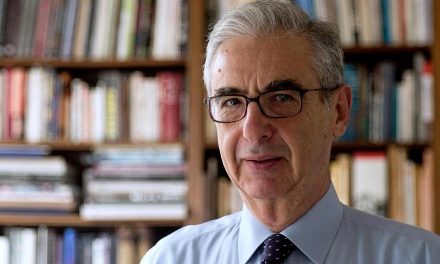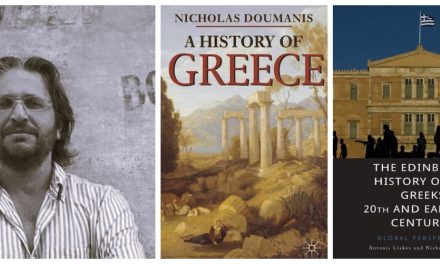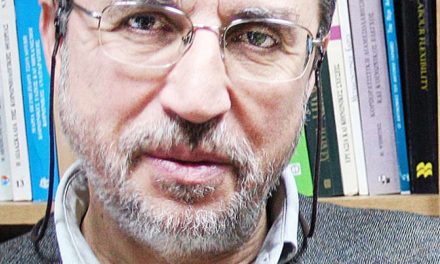Johanna Hanink is professor of Classics at Brown University, and her work in Classics focuses on classical Athens, particularly on the intellectual and political life of the city’s fourth century BCE. She is especially interested in the construction and reception (in both antiquity and more modern times) of the idea of the ancient ‘Greek miracle’. Some of her work touches on the points of contact between modern politics and ideas about ancient Greece, and antiquity more generally. She is the author of Lycurgan Athens and the Making of Classical Tragedy (Cambridge 2014) and The Classical Debt: Greek Antiquity in an Era of Austerity (Harvard 2017). She is is a translator Ancient as well as Modern Greek, having translated among others The Archeologist and Selected Sea Stories (Penguin 2021; a volume of works by Andreas Karkavitsas), she is active in Brown’s Program in Modern Greek Studies and hosts a biweekly podcast called Lesche: Ancient Greece, New Ideas.
Professor Hanink spoke to Rethinking Greece* on how she was inspired by other academic podcasts and her desire for more informal scholarly dialogue to create her own podcast, Lesche, which aims to foster a sense of community within academia. Hanink discusses featuring authors of longue durée studies, as well as translators—such as Emily Wilson and Daniel Mendelsohn—whose work offers a unique bird’s-eye view of entire Ancient Greek texts and makes them more accessible to contemporary readers.
She also highlights the wealth of creative work inspired by Greek mythology, such as Kaos, the British mythological dark comedy TV series, whose creator Charlie Covell, appeared on the podcast. Hanink emphasizes that the barriers between academics and creatives should be lower, and that there should be space for open dialogue between the two groups about their work on Greek antiquity. Finally, she expresses her hope that the podcast will gain listeners among undergraduates—not just classicists—especially at a time when the Humanities are under threat; students need to know that Humanities research demands real expertise and generates new knowledge.
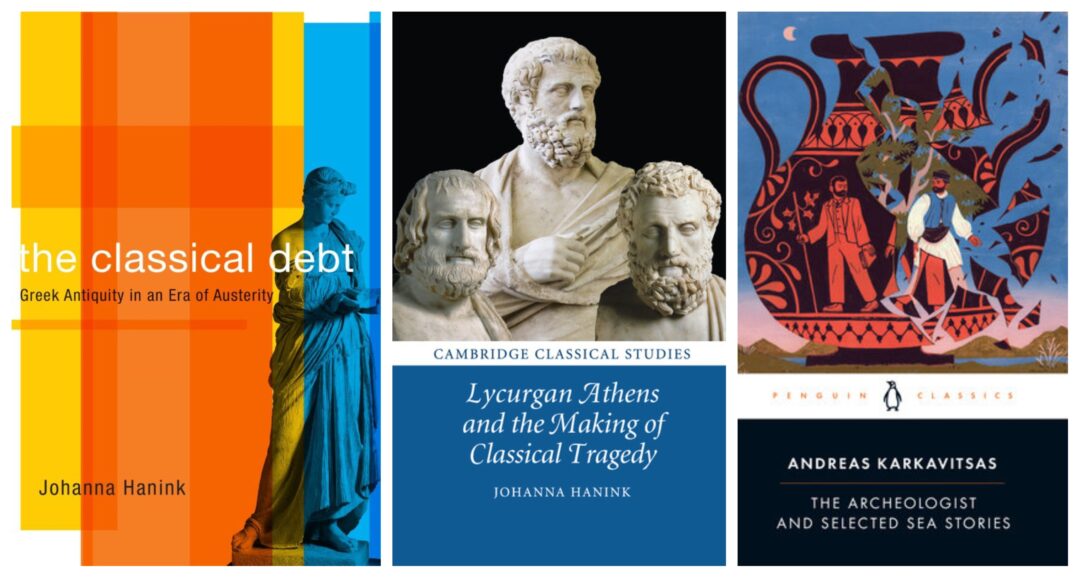
Professor Hanink, your podcast Lesche brings together Hellenists to discuss their latest work. What inspired you to create this kind of conversational platform, and why did you choose the format of a podcast over more traditional academic dissemination? How does this concept of a lesche inform your approach?
During the pandemic, I hosted a few Zoom events for my department for which I interviewed colleagues about their newly published books. I really enjoyed the format—the conversations last about 45 minutes, and covered everything from the book’s conception to the author’s ideas for their next project. Then, over the last couple of years, I became an avid listener of Anthony Kaldellis’ podcast Byzantium and Friends. We didn’t have anything quite like that in the field of Ancient Greek Studies (nor is there one for Roman Studies, as far as I know). By “like that” I mean a podcast hosted by an active researcher in the field who curates a program of conversations with colleagues about their latest work in the field. It all finally clicked into place last summer, when some exciting titles came out: e.g., Rachel Kousser’s Alexander at the End of the World, but also Ferdia Lennon’s wonderful Glorious Exploits, which takes an anecdote from Plutarch about the Athenian invasion of Sicily during the Peloponnesian War and spins a whole novel out from it. When those books appeared it pushed me over the edge, and I decided to give podcasting a try.
The concept of the lesche certainly informs the vibe I’m going for: I wanted the podcast to feel like a place where people can chat informally about their work and ideas. Honestly, I often prefer those kinds of relaxed conversations to formal academic lectures. The ideas seem to flow more naturally, and I like to be able to joke around a little with the guests. I also like that the word lesche has similar, positive resonances of friendship and idea-exchange in both Ancient and Modern Greek.
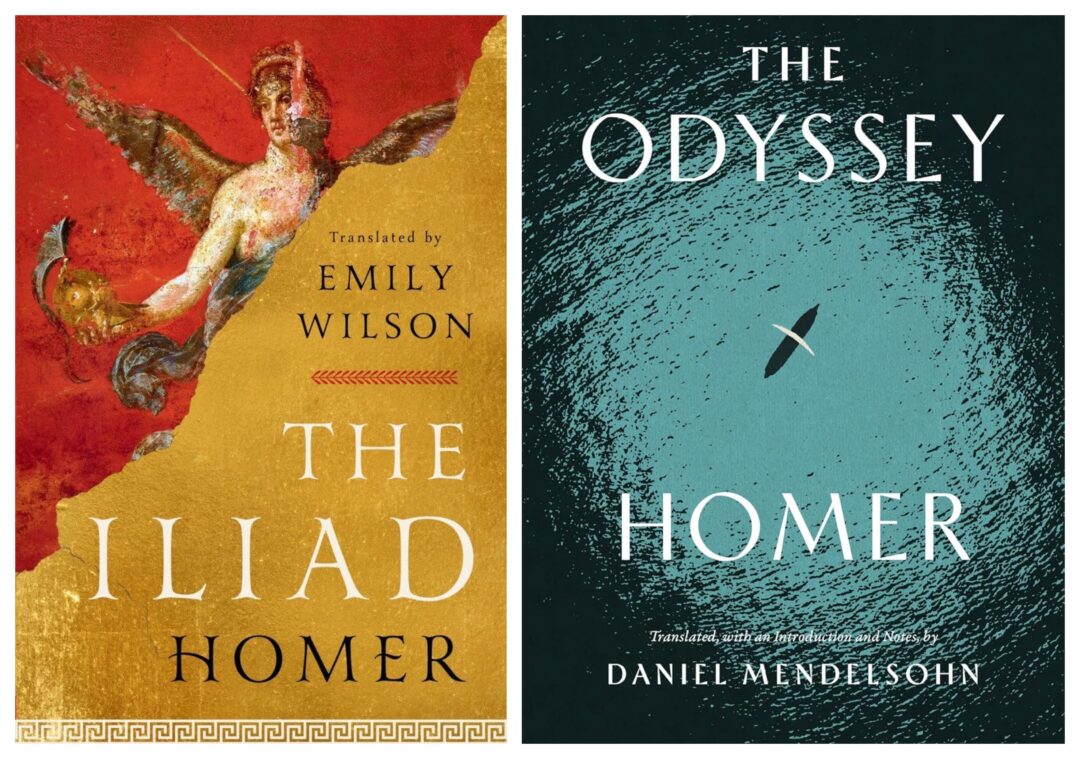
Your focus is on the latest work of Hellenists in the field of Classics. What trends or shifts in Hellenistic studies have you noticed emerging through these discussions? Are there particular themes you find repeatedly surfacing?
I try to cover a good spread of topics, but the books/projects I do choose to cover inevitably reflect my own interests. I spend a lot of time scouring publishers’ lists of forthcoming books, though, and on the basis of those I’d say that there is still a lot of interest in classical Athens, and that maybe the boom in Hellenistic Studies is subsiding somewhat. (I hope that I’m wrong.) I’ve especially enjoyed speaking to guests about projects with very long temporal ranges—John Ma on his Polis book, Emma Greensmith on her new Cambridge Companion to Greek Epic, and archaeologist Alex Knodell on the Small Cycladic Islands Project (SCIP). Those kinds of longue durée studies are really important.
Translation is another big theme; the first season featured Emily Wilson on her Iliad and Daniel Mendelsohn on his Odyssey. I hope to have more translators on to discuss their work in Season 2. Classicists tend to read very small passages from texts in a fragmented way, whereas translators gain a unique birds-eye view of the entire work they’ve translated. There’s a lot of insight to be had in that.
Season one of Lesche features conversations about monumental translation efforts like Daniel Mendelsohn’s Odyssey and Emily Wilson’s Iliad, as well as the Cambridge Greek Lexicon. What do you think these projects reveal about how we’re reimagining access to ancient Greek texts today?
Both Wilson and Mendelsohn’s translations of Homer and Diggle’s Cambridge Greek Lexicon share an aim of rendering Ancient Greek texts more accessible to contemporary readers, whether those readers know no Ancient Greek whatsoever or are experts who still need to consult a good lexicon every so often. I work with both kinds of texts, in my teaching (for which I assign translations of Homer) and my research (I’m writing a commentary, and use the CGL all the time). There really is still a strong interest in these texts, and it’s been exciting to host conversations with scholars who are making better access to them possible.
The podcast has been running for a year now. What has been a particularly memorable or insightful moment for you as a host, perhaps one that deepened your own understanding or sparked new ideas?
I have to say it was really a thrill to do an episode with Charlie Covell, creator of the Netflix show Kaos. Kaos sparked a lot of discussion in the U.S., Britain, Greece, and beyond, and I loved talking to Charlie about their vision for the show and how they brought it to life. After the episode came out Charlie and I stayed in touch, and we were lucky enough to host them for a week in the Classics Department at Brown last spring. For their final event with us, Charlie did a table reading, with a Brown undergraduate actor, of their short one-act play called “Asphodel,” which had marked the start of Charlie’s worldbuilding for Kaos. There is so much creative work out there inspired by Greek mythology, and I’d love to see more dialogue between those creators and academics. Creators read academic works, and academics teach about creative reception of antiquity, so the barriers between them really should be lower. Meeting Charlie through the podcast helped me see that more clearly.
Looking ahead, what role do you see for the podcast in engaging with these broader, perhaps more critical or unconventional, perspectives on ancient history and classics, beyond traditional scholarly work? Are there audiences beyond academia you especially hope to reach?
I’m always happy to hear that audiences outside academia are interested in the podcast, but one of the reasons I started Lesche was to improve the sense of community within the academic field. There are amazing podcasts out there that speak to wide general audiences, but I do want Lesche to be a place where both academics and creatives can speak about their work on Greek antiquity in technical terms. I initially envisioned the podcast as an academic one, but something I love about conversation is that it can make even highly-specialized topics very accessible—much more accessible than on the pages of an academic journal. A lot of the listeners are non-academics.
I would be very happy to see the podcast gain listenership among undergraduates, and not just classicists. I think it’s good for students to be exposed to academic research in the Humanities—that is, to learn that Humanities research really does require expertise and produce new knowledge. In a moment when the Humanities are very much under threat (we always say that, but it’s truer than ever right now), people need to know that Humanities work is serious, and the most basic aim of Lesche is to showcase the serious and exciting new work going on in my field.
*Interview to: Ioulia Livaditi
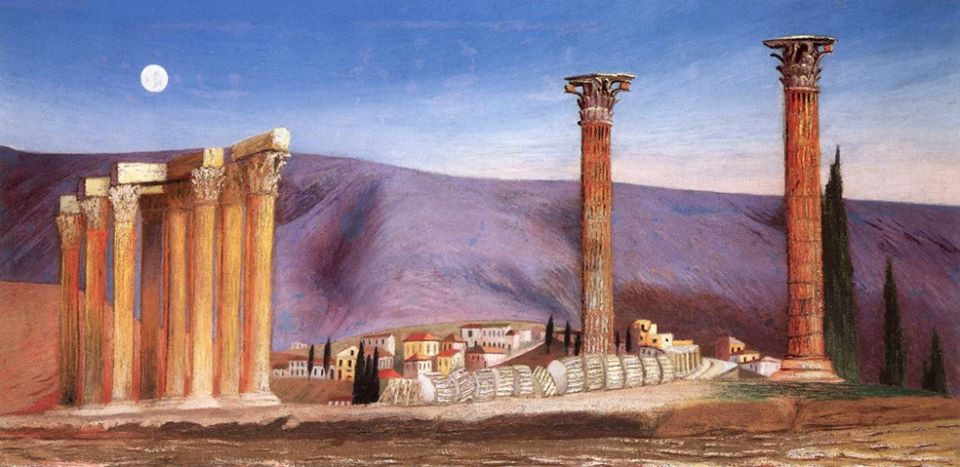
Read also from Rethinking Greece and Greek News Agenda:
TAGS: ANCIENT GREECE | CLASSICS | HERITAGE | LITERATURE & BOOKS | PODCASTS

